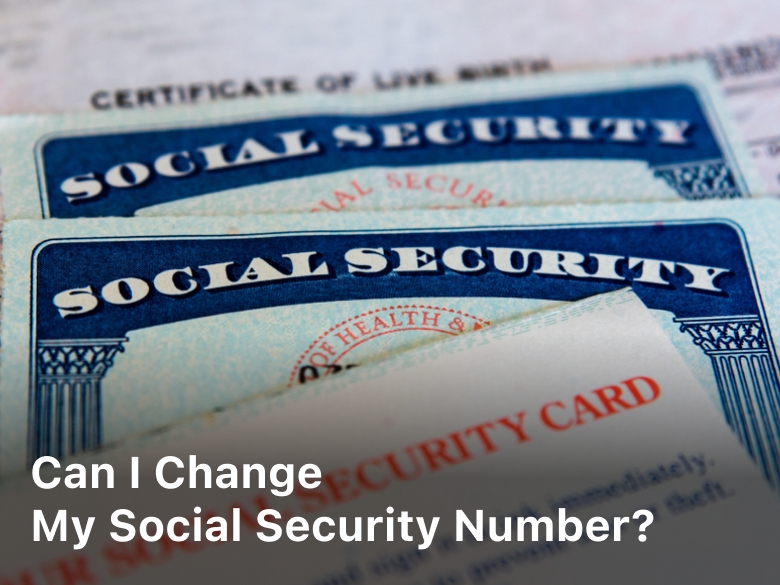
Can I Change My Social Security Number?
anonymizevpn.com. Can I Change My Social Security Number? – Discover everything you need to know about changing your Social Security Number. Get insights, FAQs, and expert advice in this comprehensive guide.
In the complex world of personal identification, your Social Security Number (SSN) stands as a crucial cornerstone. It is the key that unlocks various aspects of your financial, employment, and social life.
But what if circumstances arise that make you ponder, “Can I Change My Social Security Number?” This article aims to demystify the process, exploring the reasons, implications, and how-tos, leaving no stone unturned.
What is Social Security Number?
A Social Security Number (SSN) is a unique nine-digit identification number issued by the United States government through the Social Security Administration (SSA). It serves as a primary identifier for U.S. citizens, permanent residents, and certain temporary residents
Can I Change My Social Security Number
In the United States, changing your Social Security Number (SSN) is a rare and challenging process. The Social Security Administration (SSA) only allows individuals to request a new SSN under very limited circumstances, and they must meet strict criteria. Here are the primary reasons the SSA might consider issuing a new SSN:
- Identity Theft: If you can prove that you are a victim of identity theft and that someone is using your SSN for fraudulent purposes, you may be eligible for a new SSN. You will need to provide evidence of the theft, such as police reports and documentation of fraudulent activity.
- Severe Harassment or Abuse: If you can demonstrate that your current SSN is causing you severe harm, such as harassment or abuse, you may be considered for a new SSN. This typically requires a court order documenting the harassment or abuse.
- Sequential or Predictable SSN: If your SSN has been sequentially assigned, meaning it was assigned in a predictable pattern, and you can prove that it has caused you harm, the SSA may consider changing it.
- Religious or Cultural Reasons: In some cases, individuals may request a new SSN for religious or cultural reasons, such as a conflict with their existing SSN. This request is evaluated on a case-by-case basis and may not always be granted.
It’s important to note that changing your SSN is not a common or easy process, and it should only be pursued if you meet one of the above criteria.
Additionally, obtaining a new SSN does not erase your credit history or any legal obligations tied to your previous SSN. You will need to update all relevant agencies and institutions with your new SSN, and this process can be time-consuming and complex.
If you believe you qualify for a new SSN based on one of the above criteria, you should contact your local Social Security office and discuss your situation with them. They will provide guidance on the necessary steps and documentation required to initiate the process.

How to Change My Social Security Number
Changing your Social Security Number (SSN) in the United States is an extremely rare and difficult process. The Social Security Administration (SSA) only allows it under very limited and exceptional circumstances, primarily related to identity theft or extreme cases of harassment or abuse.
Here’s how you might go about it if you believe you meet these criteria:
- Document Identity Theft
If you are changing your SSN due to identity theft, the first step is to document the theft thoroughly. This may include filing a police report and keeping all relevant documents related to the theft. - Contact the SSA
Reach out to your local SSA office to explain your situation and inquire about changing your SSN. They will guide you through the process and provide the necessary forms. - Complete the Application
You will need to fill out an application form for a new SSN. This form is typically known as Form SS-5, “Application for a Social Security Card.” You can obtain this form from the SSA website or your local SSA office. - Gather Supporting Documents
You will need to provide various documents to support your request, which may include proof of identity, evidence of the identity theft or other exceptional circumstances, and any documentation required by the SSA. - Submit Your Application
Take your completed application and supporting documents to your local SSA office. The SSA will review your case to determine whether you meet the criteria for a new SSN. - Wait for a Decision
The SSA will review your case, which may take some time. They will assess whether your situation qualifies for a new SSN based on their guidelines. - Follow Up
If your request is approved, you will be issued a new SSN. Make sure to update your records with the new number and inform relevant agencies, employers, and financial institutions about the change.
It’s essential to understand that the SSA rarely grants requests for SSN changes, and it is generally reserved for extreme cases. It’s often a complex and lengthy process, and there is no guarantee that your request will be approved.
Before attempting to change your SSN, it’s advisable to consult with the SSA directly to discuss your specific situation and receive guidance on the process. In most cases, they will recommend other measures to protect your existing SSN and address identity theft or harassment issues without changing the number.
Why Would You Want to Change Your SSN?
Changing your Social Security Number (SSN) is not a common or easily achievable process, and it is generally discouraged by government agencies like the Social Security Administration (SSA) except in very specific and extreme circumstances.
Here are some reasons why someone might want to change their SSN:
- Identity Theft: If you have been a victim of identity theft, and your SSN has been compromised, you might consider changing it to prevent further misuse. However, this is typically done as a last resort after exhausting all other options for resolving the identity theft issue.
- Stalking or Harassment: In cases of severe stalking or harassment where the perpetrator has your SSN and uses it to harass you, you may seek a new SSN to protect your identity and privacy.
- Family Issues: If you are trying to escape an abusive family situation and fear that your family members might use your SSN for fraudulent activities or to locate you, you might request a new SSN.
- Unique Circumstances: In very rare cases, individuals with particularly unique and compelling reasons may be granted a new SSN. However, these cases are thoroughly reviewed and typically involve law enforcement agencies.
- Protecting Minors: In some cases, if a child’s SSN has been used fraudulently, a parent or guardian may request a new SSN for the child to protect their financial future.
It’s important to note that changing your SSN is not a straightforward process, and the SSA generally reserves it for situations where there is a demonstrated need to protect someone from ongoing harm or financial loss due to identity theft or fraud.
Additionally, changing your SSN can be a complex and lengthy process, involving extensive documentation and legal procedures.
If you believe you have a legitimate reason to change your SSN, it is advisable to contact the Social Security Administration directly to discuss your situation and receive guidance on how to proceed. In most cases, they will recommend taking steps to safeguard your existing SSN and resolve any issues rather than issuing a new one.
FAQs
Can I Change My Social Security Number More Than Once?
Yes, but it’s extremely rare. The Social Security Administration typically allows a change only if you can prove a valid reason.
How Long Does the Process Take?
The processing time can vary, but it often takes several weeks to several months.
Will My Old SSN Be Invalidated?
Yes, once you receive a new SSN, your old one will be invalidated, and you should destroy any documents containing the old number.
Can I Keep My Old SSN a Secret?
No, your new SSN will not be kept secret, and you will have to update it with relevant institutions and authorities.
What Are the Risks of Changing My SSN?
Changing your SSN can be a lengthy process and may lead to complications in your financial and legal affairs. It’s essential to consider the potential risks before proceeding.
Are There Any Fees for Changing My SSN?
No, there are no fees associated with changing your SSN through the Social Security Administration.
Conclusion
Changing your Social Security Number is not a decision to be taken lightly. It involves a thorough process and has potential implications for various aspects of your life.
It’s crucial to have a valid reason and follow the proper procedures if you find yourself asking, “Can I Change My Social Security Number?” Your SSN is your key to various benefits and responsibilities, so handle it with care.
Remember, this article provides valuable information, but it’s always advisable to consult with the Social Security Administration or legal experts for personalized guidance on this matter.





